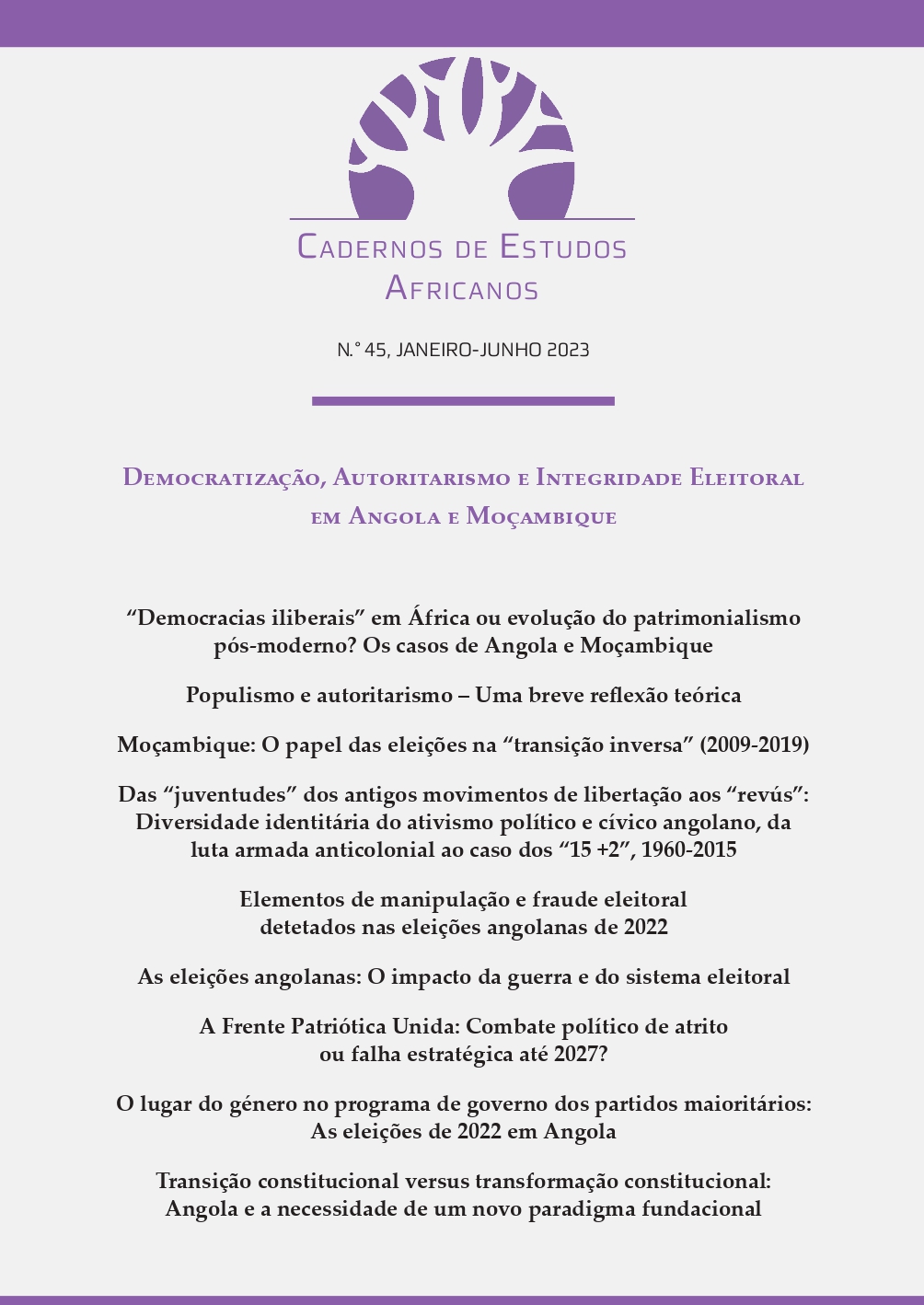“Democracias Iliberais” em África ou Evolução do Patrimonialismo Pós-moderno? Os casos de Angola e Moçambique
DOI:
https://doi.org/10.4000/cea.7660Resumo
Os sistemas políticos africanos subsarianos do pós-independência nunca foram réplicas deficientes dos principais e dominantes modelos políticos internacionais. Mesmo em casos extremos de condicionamento internacional, como aqueles aqui analisados –Angola e Moçambique–, sujeitos à influência de modelos socialistas durante a Guerra Fria (e só depois “liberais”), a sua matriz neopatrimonial do pós-independência provou a sua capacidade de se estruturarem nos seus próprios termos, nas diferentes épocas históricas, de se reinventarem e acomodarem às influências externas através de crescente agência interna. A sua atualmente ativa interação com as novas tendências internacionais de iliberalismo é somente o mais recente exemplo de um longo percurso de utilização seletiva de tendências internacionais em favor das lógicas internas dominantes de governação, que se têm sedimentado e progredido no sentido de um patrimonialismo pós-moderno, conforme aqui sustentado.
Downloads
Publicado
Edição
Secção
Licença
Direitos de Autor (c) 2024 Cadernos de Estudos Africanos

Este trabalho encontra-se publicado com a Licença Internacional Creative Commons Atribuição-NãoComercial-CompartilhaIgual 4.0.
Autorizo a publicação do artigo/recensão submetido do qual sou autor.
Declaro ainda que o presente artigo é original, que não foi objecto de qualquer tipo de publicação, e cedo em exclusivo os direitos de publicação à revista Cadernos de Estudos Africanos. A reprodução do artigo, no todo ou em parte, noutras publicações ou noutros suportes depende de autorização prévia da editora Centro de Estudos Internacionais do Iscte - Instituto Universitário de Lisboa.

